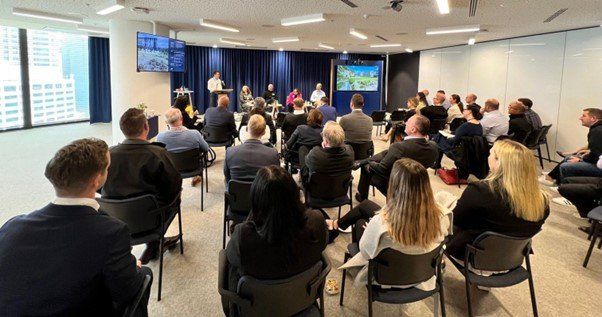Zenergy Leaders Forum – Panel Discussion 'Contractor & Vendor Management'
Zenergy 2022 Leaders Forum - 'Contractor & Vendor Management'

Being at the forefront of Health & Safety in Australia, Zenergy in partnership with Mirvac was excited to host the 2022 Zenergy Leaders Forum in Sydney on Contractor & Vendor Management.
It was a full house at Mirvac for a fascinating discussion with some of the leading legal and safety minds discussing how as practitioners we are tasked with enabling our organisations to meet their OHS legal obligations in terms of 3rd party contractors and vendors, whilst at the same time having to deal with increasing cost, resourcing, social license to operate, and productivity constraints.
It was an informative and high-level exploration of challenges faced by organisations working with their contractor and vendor partners from a legal vs practical / pragmatic work as done perspective.
Some of the key takeaways from our attendees:
- Engage contractors through a frame of ‘collaboration and coordination’; and ‘how can we support you to do your work well’; allow capacity in contracts, and for your people, for this to occur.
- Identify and manage big risk items; Focus intently on how work is done.
- Be clear on who’s systems operate and at what time. Determine who is in control and for what.
- Be clear about what you can and can't control and positively influence; don’t overreach.
- Where contracted resources are scarce, partner and support your contractors to ensure work is done well (successfully and safely); establish win-win arrangements.
- Be cautious with pre-qualification processes that unfairly focus on /weight TRIFR; focus rather on demonstrated engagement and performance by your contractors.
Thank you to our Host and MC Brian Long, Group General Manager HSE – Mirvac, and a special thanks to the panel:
o Steve Bell, Herbert Smith Freehills
o Lea Constantine, Ashurst
o Alena Titterton, Clyde & Co
o David Provan, Forge Works
For upcoming similar events get in touch with the team Zenergy Safety, Health & Wellbeing at info@zenergygroup.com.au
Contact Us
Zenergy News






